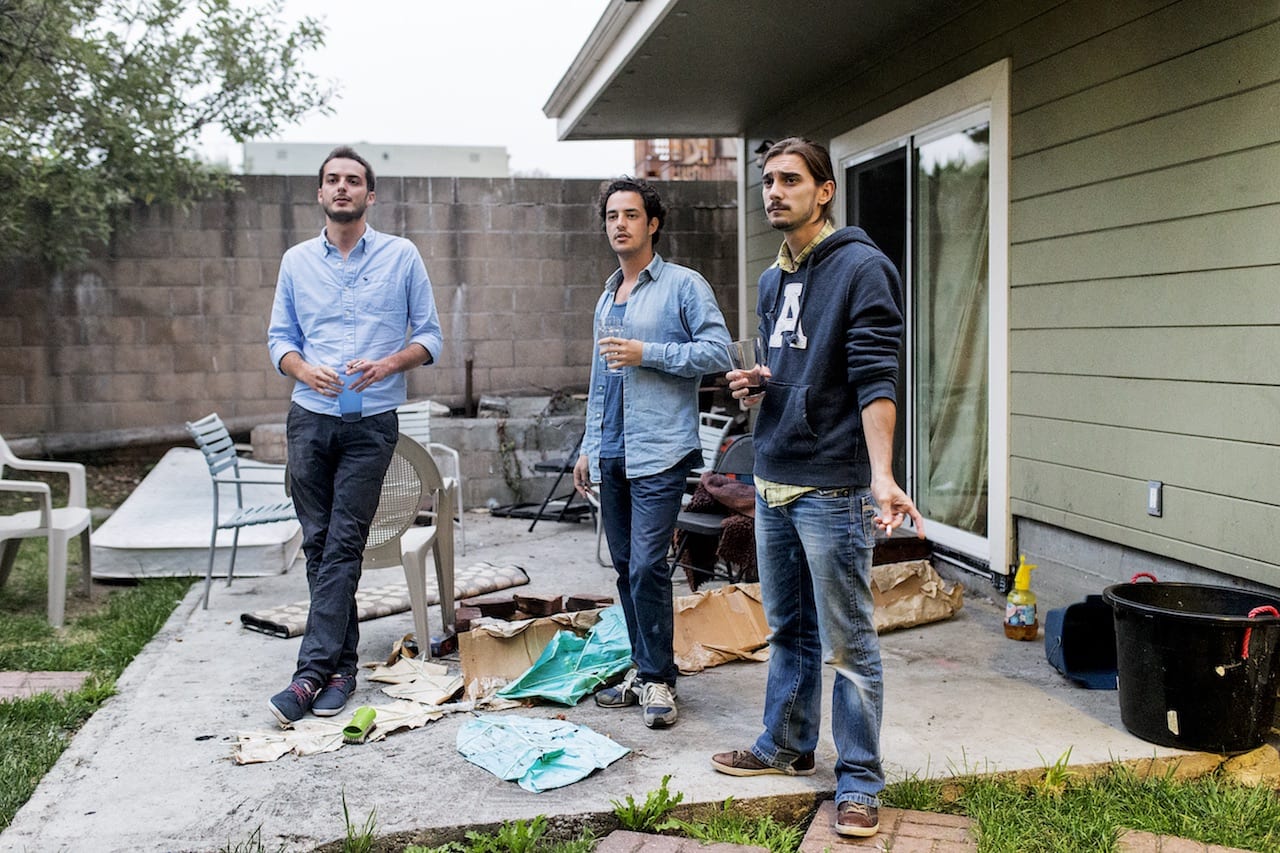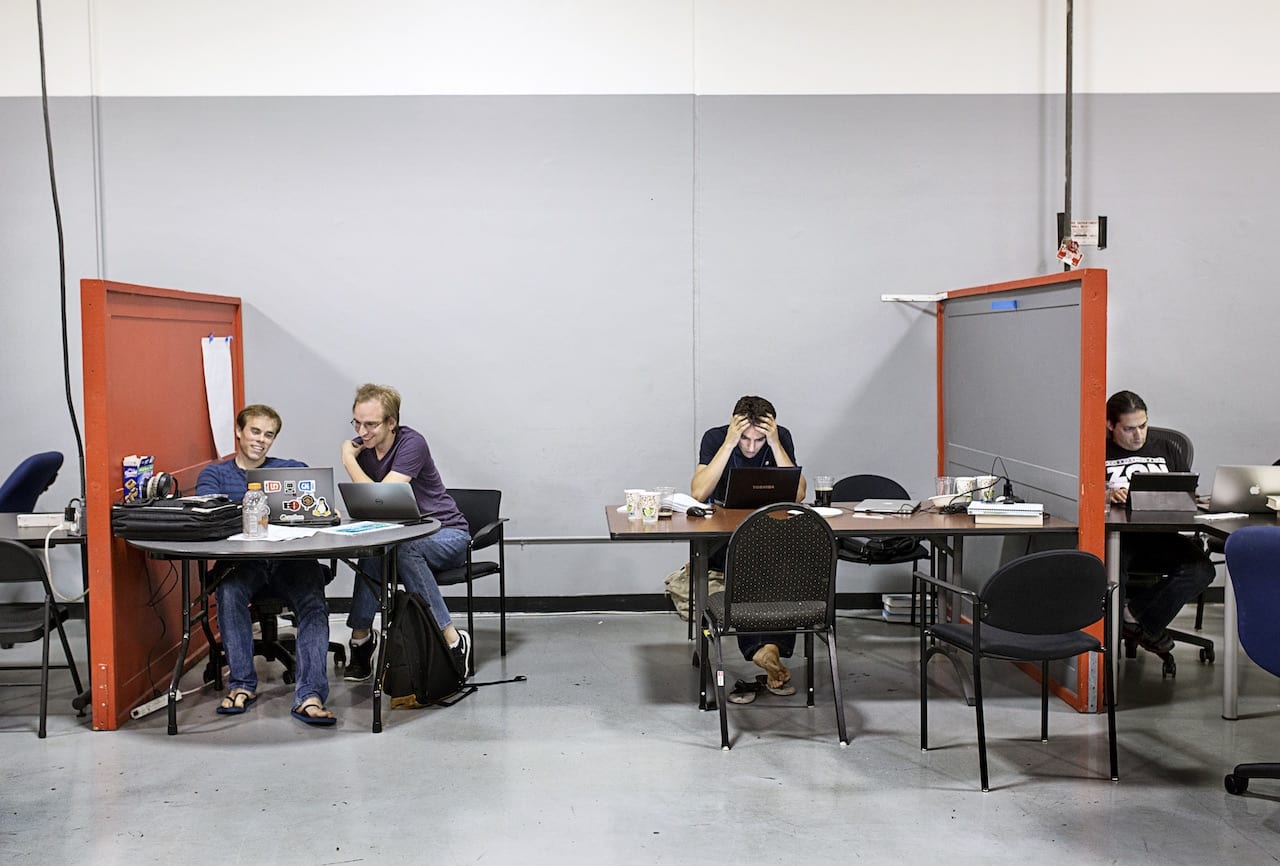In Dave Eggers’ novel The Circle, recent graduate Mae Holland joins a highly successful social media corporation in California. The Circle, as the company is named, demands 24/7 loyalty from its staff but, seduced by its power and glamour, Holland is quickly drawn in and starts sleeping at the on-site dormitory and almost exclusively hanging out with its employees. By the end of the book things have taken a dystopian turn, and The Circle has morphed into a totalitarian regime, governed by slogans such as ‘Privacy is Theft’ and ‘Secrets are Lies’, poised to take over the world.
It’s a compulsive read, and is currently being turned into a film starring Emma Watson and Tom Hanks, so you’d think it would be required reading for young entrepreneurs relocating to San Francisco to set up their own tech businesses. Photographer Laura Morton agrees, but says most of them have never heard of the book. “You have to understand, most of them are completely dedicated to their work,” she says. “They have to launch faster than the next guy, quickly scale up their business… They’re not looking outward a lot.”
The 32-year-old, who was born in Maryland and grew up in the suburbs of Washington, DC, has been shooting these young entrepreneurs since 2014, when she was awarded a Magnum Foundation Emergency Fund grant to start the project; they’re different to the characters in The Circle in that they’re setting up their own companies rather than working for a huge, well established firm, but she says the book is still “on point”.
Cramming together in large co-living houses to save on rent, often sharing rooms or couch-surfing, her subjects rent desks in large co working offices, and socialise together at networking events and parties. It’s an extremely close-knit community, and one that often has little to do with the outside world. “They’re a bit isolated,” says Morton. “They can’t keep up with anything else.”
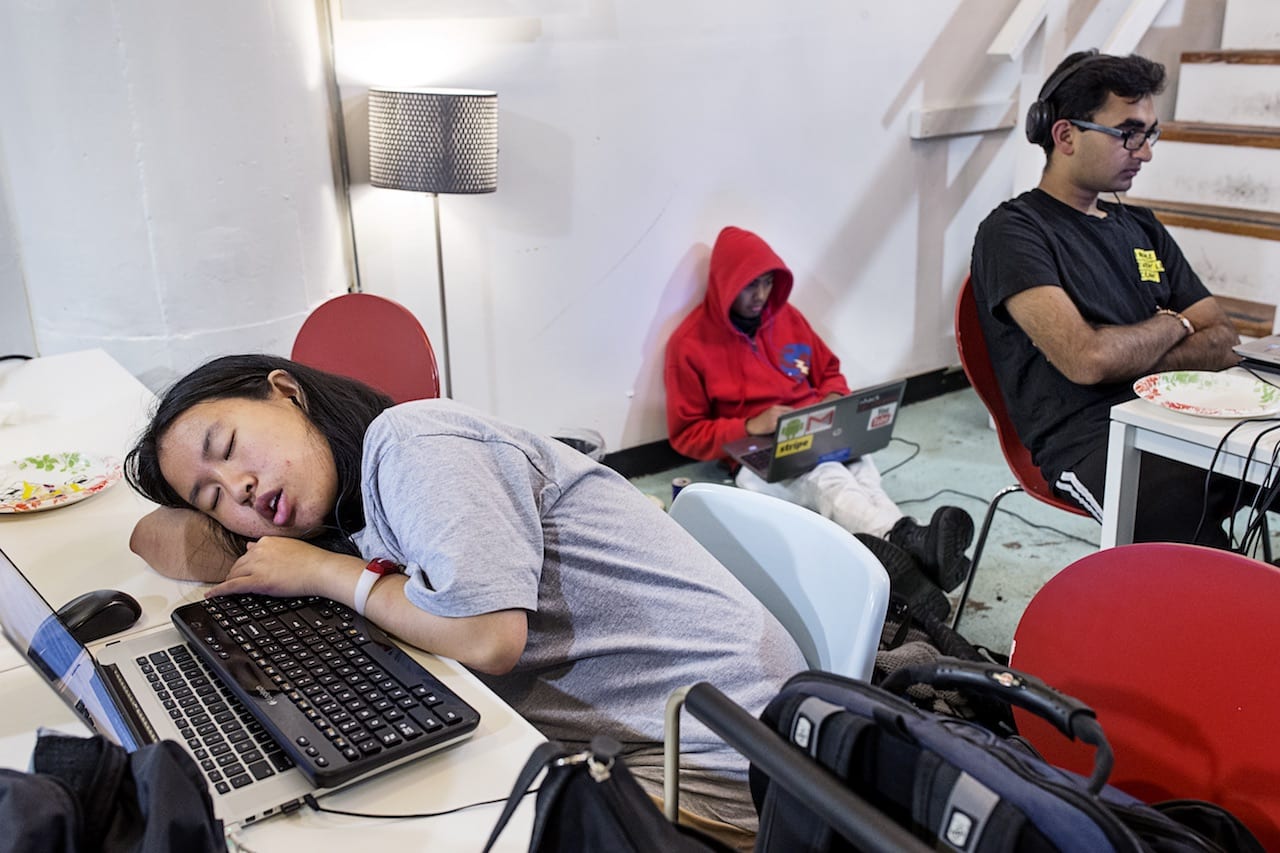
Morton describes the atmosphere as “somewhere between the gold rush and the summer of love”, and named her project Wild West Tech because of it. These youngsters are drawn by the promise of big bucks, setting up apps and online projects that they hope will hit the big time; like the hippies of the 1960s they’re also reinventing how they live, but perhaps inadvertently rather than as a conscious social experiment. Morton says it can be claustrophobic, the densely populated ‘hacker houses’ oppressively crowded and hard to photograph because of it, but adds that the techies wholeheartedly embrace this life.
“This sort of co-living, co-working lifestyle really appeals to introverts and loners. They can do their own thing if they want, and shut their door in the hacker house or put headphones on in the co-working space and pretty much be left alone; but living and working in this environment also means instant friends. It makes life a lot easier for people who might otherwise have trouble putting themselves out there and meeting people.”
Along the way they’re also developing a subculture. Morton has photographed ‘hackathons’ – events lasting days in which participants stay up all night to build new programmes, for prizes, or “just for the heck of it”. She’s also photographed early morning ‘daybreaker events’, substance-free dance parties held on weekday mornings before work that are “very popular with young technology industry workers”. Food delivery apps are incredibly popular among this community, “and somehow have incredibly high valuations”, she says – something which she finds “mind-boggling”, but not surprising given how the entrepreneurs live.
She’s also noticed a philosophy springing up behind this approach to life and work – young techies want to make things “frictionless”, as they put it. “It’s a sort of move to make everything easier,” she explains. “You see it in a lot of tech companies – they provide food, you can get your hair cut, you can even sleep there. People who leave their job think, ‘Shoot! Now I have to take care of myself!’”
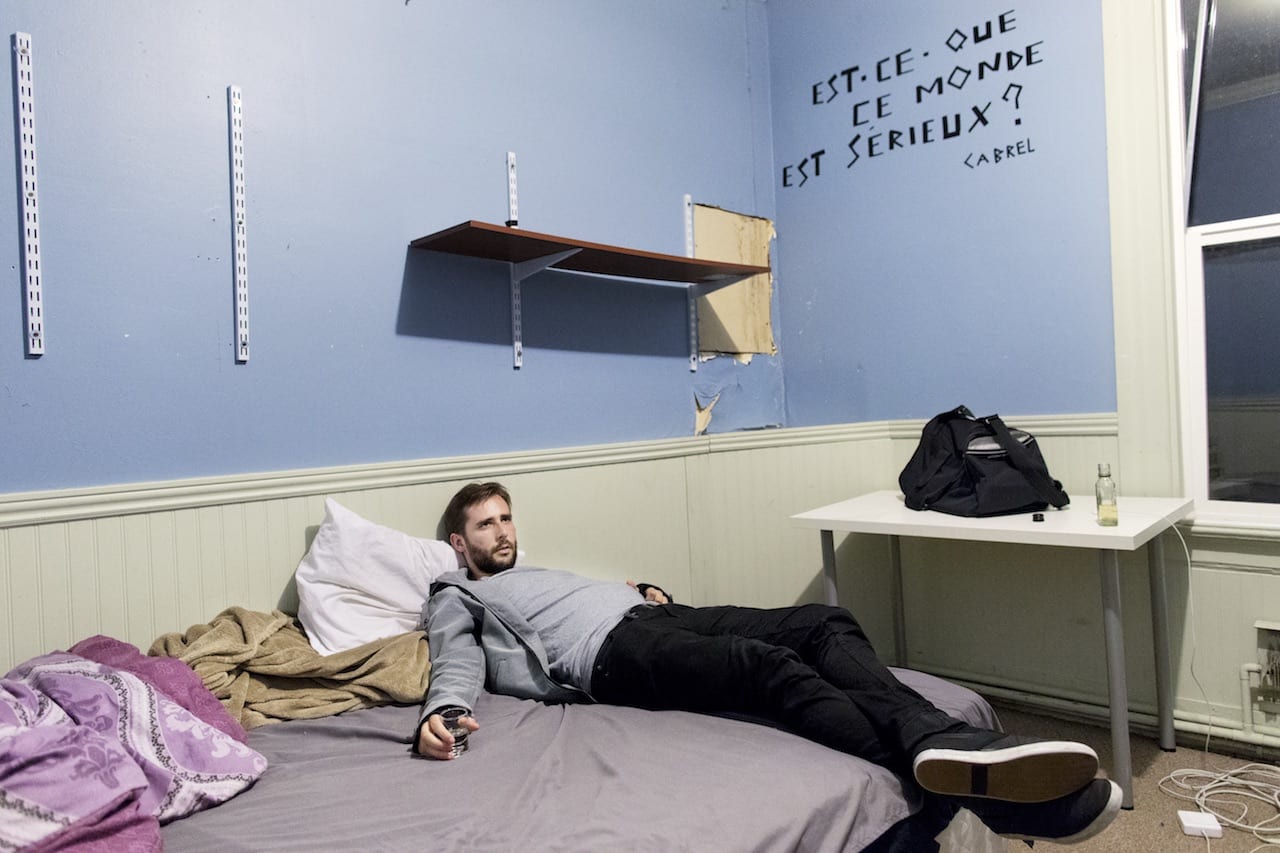
It’s an approach that has some highly successful proponents – Mark Zuckerberg, chairman, chief executive and co-founder of Facebook, who, at 31, is the fifth-richest person in the world, wears the same grey T-shirt every day because he wants “to clear my life, so that I have to make as few decisions as possible about anything except how to best serve this community”. But to Morton, it’s also to miss out on “these things which I consider to be real life”, and she wonders how it plays out in the wider community.
“There’s a girl who lives in my building who gets her groceries delivered from Amazon and I’m like, ‘But there’s a Safeway two blocks away!’” she laughs. “It is a bit scary – what does that do to a community? I’ve lived in my apartment for seven years, I know the neighbours, I know the UPS guy, the people at the local grocery store. They’re not people who are necessarily my best friends, but I know that if something happened, there are people who would have my back, because we have some kind of connection.”
But while she has some criticisms, she says she doesn’t want to demonise her subjects. Having lived in San Francisco for 10 years, she’s heard the complaints about the “frickin’ techies” who have helped make the city one of North America’s most expensive; she has some sympathy, but believes the tech entrepreneurs are not the problem.
“I get it, I’ve seen the city change, but these people are not necessarily the ones responsible,” she says, pointing out that most of them barely have enough money to get by. “I wanted to add some nuance,” she later adds. “Over here you see the same old stories, the Google bus protests or gentrification, but I don’t see this part of it being covered.”
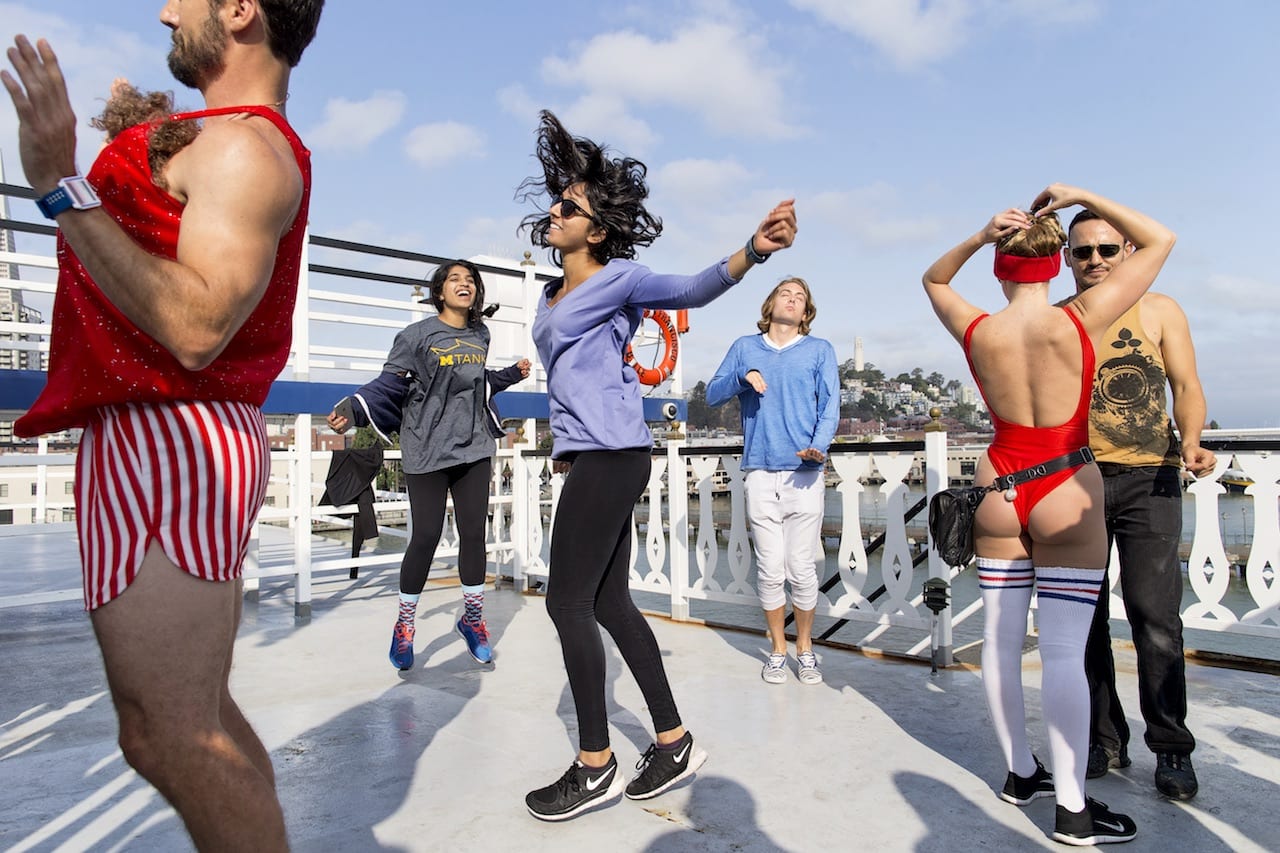
In fact, one of the reasons she chose the project was because it was close to home, so she could shoot it long-term in between commercial and editorial assignments, and illustrate a wider picture. It’s an approach that’s served her well in the past: her project The Social Stage, shot at high-rolling galas in San Francisco over several seasons, was awarded in the PDN Photo Annual in 2012 and the Hearst 8×10 Photography Biennial the following year.
“It’s partly financial, as I can work longer if I work where I live rather than starting a project elsewhere then saving up and going back to shoot more. Also, there is very interesting stuff going on in the US,” she says. “And I think I work best when I know how to fit in. But it’s not necessarily my world. I can walk the walk, but remain separate… Most of the people [portrayed in Wild West Tech] are younger than me, so I see them and I can remember how it felt, but I’m a little removed.”
A political science and journalism graduate, Morton also likes to research her projects thoroughly, and has been reading up on the first tech boom. “I’ve been reading about it a lot because I’m anticipating the bust [of Tech 2.0],” she says. “Wild West Tech has been published and all that, but I don’t think I’ll have finished until this boom is over.”
“I’m very interested in history,” she concludes. “These photographs will be more interesting several years down the line.”
